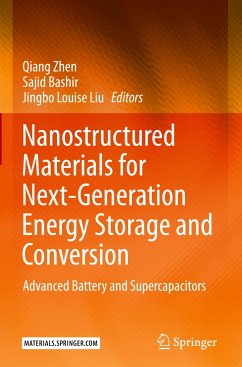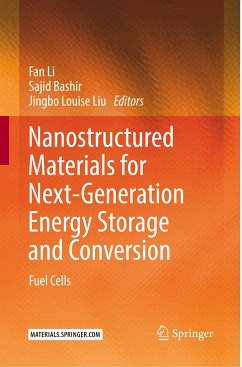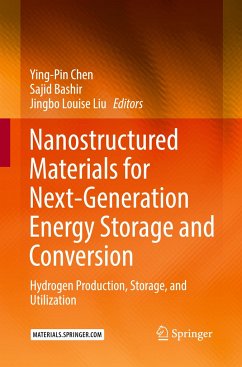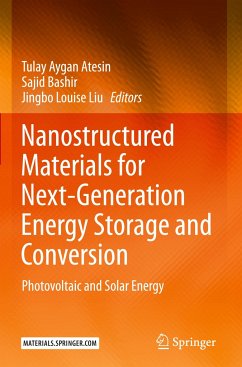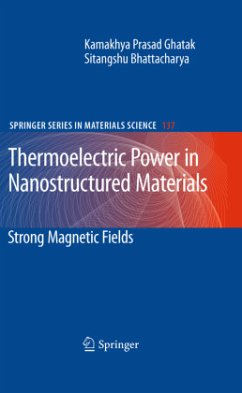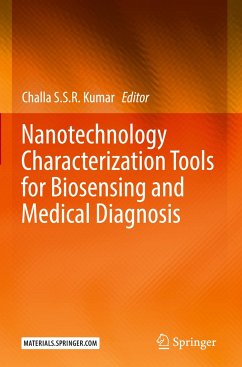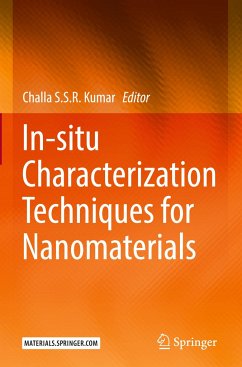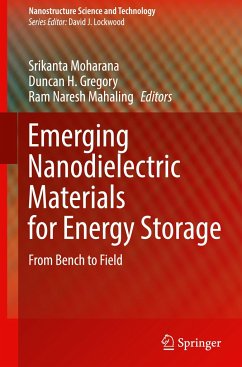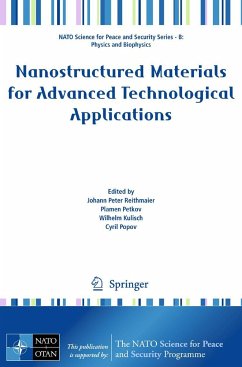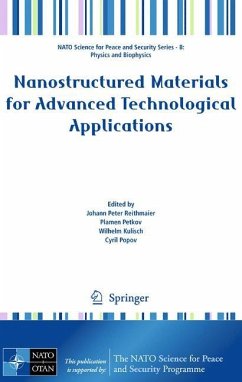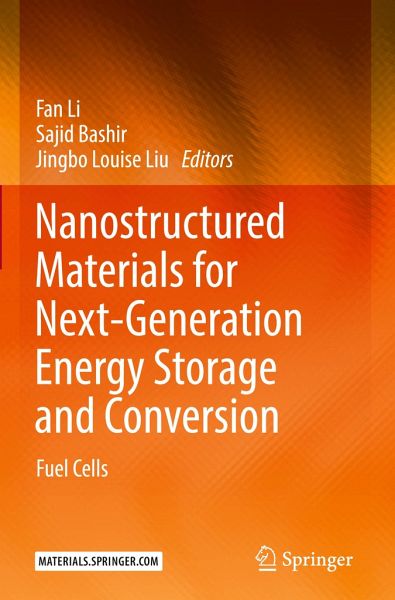
Nanostructured Materials for Next-Generation Energy Storage and Conversion
Fuel Cells
Herausgegeben: Li, Fan; Bashir, Sajid; Liu, Jingbo Louise

PAYBACK Punkte
114 °P sammeln!
The energy crisis and pollution have posed significant risks to the environment, transportation, and economy over the last century. Thus, green energy becomes one of the critical global technologies and the use of nanomaterials in these technologies is an important and active research area. This book series presents the progress and opportunities in green energy sustainability. Developments in nanoscaled electrocatalysts, solid oxide and proton exchange membrane fuel cells, lithium ion batteries, and photovoltaic techniques comprise the area of energy storage and conversion. Developments in ca...
The energy crisis and pollution have posed significant risks to the environment, transportation, and economy over the last century. Thus, green energy becomes one of the critical global technologies and the use of nanomaterials in these technologies is an important and active research area. This book series presents the progress and opportunities in green energy sustainability. Developments in nanoscaled electrocatalysts, solid oxide and proton exchange membrane fuel cells, lithium ion batteries, and photovoltaic techniques comprise the area of energy storage and conversion. Developments in carbon dioxide (CO2) capture and hydrogen (H2) storage using tunable structured materials are discussed. Design and characterization of new nanoscaled materials with controllable particle size, structure, shape, porosity and band gap to enhance next generation energy systems are also included.
The technical topics covered in this series are metal organic frameworks, nanoparticles, nanocomposites, proton exchange membrane fuel cell catalysts, solid oxide fuel cell electrode design, trapping of carbon dioxide, and hydrogen gas storage.
The technical topics covered in this series are metal organic frameworks, nanoparticles, nanocomposites, proton exchange membrane fuel cell catalysts, solid oxide fuel cell electrode design, trapping of carbon dioxide, and hydrogen gas storage.



